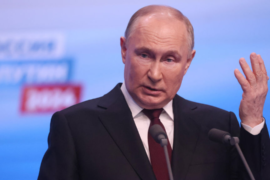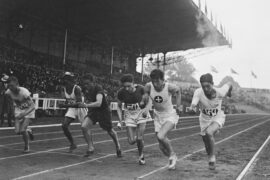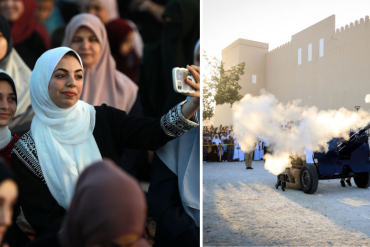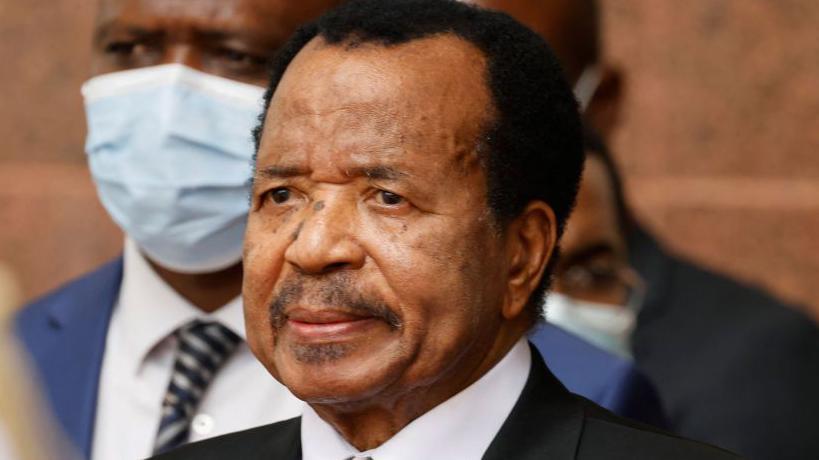
Rumours bin spread say two African presidents bin dey sick in recent weeks.
Di mata bin spark different responses and e expose how most time, dem dey treat di wellbeing of leaders as state secret.
E start wit Cameroon President Paul Biya wey be 91-year-old. Im ministers bin deny say e dey sick, as dem insist say e dey in “excellent health”.
Dem however later ban di media for Cameroon say make dem stop to dey report im condition.
Then, Malawi state house also deny di gossip wey bin spread say President Lazarus Chakwera no well. Dem post videos wey show as di leader dey jog and do press-ups for di capital, Lilongwe.
“E get as you go be as man to dominate for politics – you no fit show weakness or vulnerability,” Oxford University associate professor for African politics, Miles Tendi tok of di pomp and secrecy wey surround African leaders and dia health.
Chakwera and Biya bin use very different approaches to tackle di rumours about dia sickness, but dem get similar intention – wey be to project, and protect, an image of strength and virility.
But perhaps most importantly, to keep rivals and opportunists far.
Prof Tendi tok say di game of politics na “performance of masculinity” wey dey necessary to maintain power.
E add say di masculine nature of politics make am dey extremely difficult for women to succeed.
Currently na only one female be head of state for Africa, Samia Suluhu Hassan for Tanzania, and she inherit power as di deputy leader wen her male oga die.
- Cameroon ban report on President Paul Biya health
- Authorities respond to questions about where Cameroon president Paul Biya dey
Some African leaders wey hide dia sickness
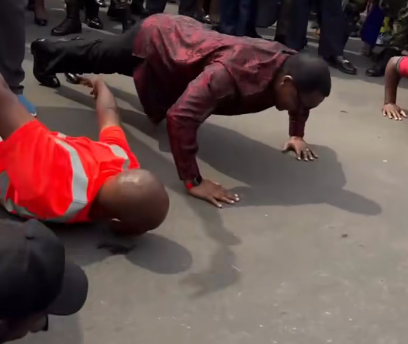
E dey expected say political leaders, for Africa and beyond, suppose be symbols of strength and resilience. Especially, wen di leader dey grow old, dia health dey become mata of huge national importance, as we don see for di US elections dis year.
University of Johannesburg professor Adekeye Adebajo tok say leaders for di continent dey “give di impression say di health of dia kontri dey tied to dia own personal health”, and dem often dey treat leader sickness as state secret.
If something happun to dem, e fit affect di economy, di markets and scata di political landscape, one security expert from Zimbabwe tell BBC, and dis na why dem dey take extra precautions.
For kontris where dia political institutions dey weak, dem no dey cement procedures for political succession well, and dis dey lead to fear say any leadership vacuum fit lead to power-struggle.
Ova two decades ago, di Democratic Republic of Congo President Laurent-Désiré Kabila bin dey assassinated by one of im bodyguards.
Authorities bin refuse to admit say e don die, as dem continue to pretend say e go Zimbabwe for medical treatment, while dem work out wetin dem go do next.
In fact, na im dead body dem fly across di continent wit big reception.
Dem later chose im inexperienced son, Joseph, as di kontri next leader.
For Malawi, di goment bin delay di announcement of President Bingu wa Mutharika death for 2012, wey spark tok-tok say effort bin dey to stop di succession of im Vice-President Joyce Banda.
But for neighbouring Zambia, where two presidents bin die for office, and for Ghana, where then President John Atta Mills die for 2012, di constitutional processes bin work smoothly.
Ova di years, various African leaders don meet questions about dia ailing health wit either silence or anger.
For 2010, Zimbabwe former leader Robert Mugabe bin slam years of speculation as “naked lies wey Western-manipulated media create”.
Three years ago, di announcement say Tanzania President John Magufuli don die bin come afta weeks of denial say im dey sick.
Dem even arrest pipo on top accuse say dem spread false informate about im health, only for dem to be ultimately proven right.
One of di most extreme cases of goment wey hide di health status of dia leader bin happun for Nigeria, where nobody see President Umaru Yar’Adua for public for five months.
Im office bin tok say e dey receive treatment for January 2010 and add say e dey “get beta” however, plenty reports dey wey tok say e dey “brain-dead”.
Yar’Adua no ever appear for public again, and dem announce im death for May of day year.
“Some of these guys just wan hang onto power,” Prof Tendi tok, even until di bitter end.
African leaders wey announce dia health status
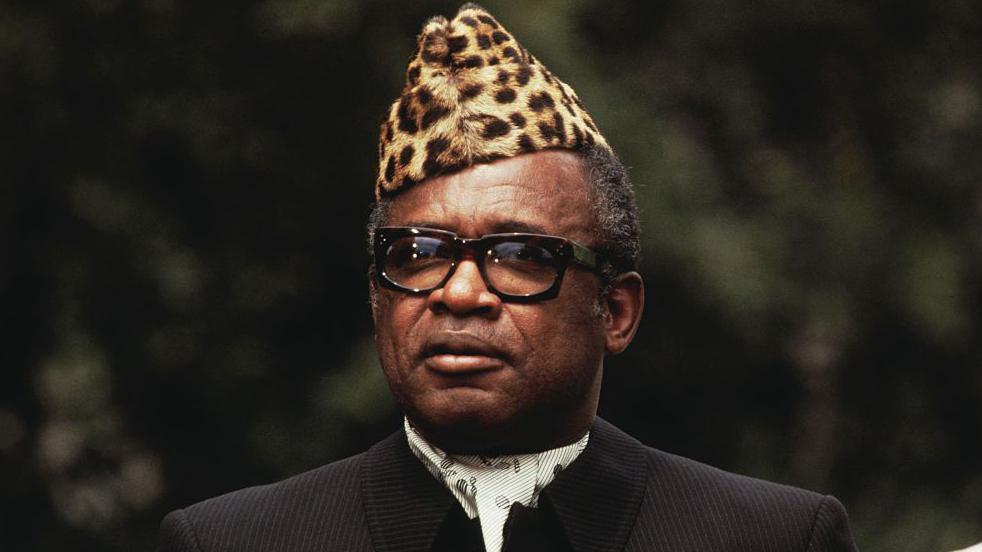
Many leaders, beyond Africa as well, no think say dia citizens get right to know about dia health, wey dem dey treat as highly confidential.
But exceptions dey.
Afta seven weeks of official medical leave for 2017, Nigeria President Buhari bin reveal to im kontri pipo say im dey “so sick” and im no ever bin dey sick like dat for im life, although e no tok where dey pain am.
Many pipo believe say Cameroon former President Ahmadou Ahidjo na di only African leader wey resign sake of ill health, for 1982, afta e rule for 22 years.
Dis kain transparency and handing ova of power dey rare.
More dan 20 African leaders don die for office, some no even inform dia kontri pipo say dem no well.
Leaders fit dey fear say if dem reveal dia health issues, e fit embolden dia rivals or even foreign powers wey wan influence or destabilise di kontri.
Dem don remove some presidents afta tori of dia health dey publicised.
For 1996, na public knowledge say di kleptocratic leader of Zaire (now DR Congo) Mobutu Sese Seko, bin dey recieve treatment for prostate cancer.
Dis no doubt make am dey much easier for Laurent Kabila to lead one band of Rwanda-backed rebels across di vast kontri.
Mobutu bin dey too sick to coordinate any resistance, and e run go Morocco to hide as exile, and leave Kabila to seize power.
“If dem see say you dey weak, na signal to your internal rivals,” Prof Tendi tok.
But Nigerian farmer and teacher, Abeku Adams, 41, wey don experience di death of two presidents for office, tok say di secrecy fit also be “cultural thing”.
While private citizens get right to keep dia medical records confidential, e dey argued say political leaders no get dis luxury becos dia health fit get impact on di whole kontri.
As more African kontris dey establish stronger succession procedures, calls don dey for greater transparency wen e come to di health of dia leaders, especially from di continent increasingly youthful population.
“Governments owe am to dia citizens to share dat kain information,” Mr Adams tok.
E say becos citizens dey pay taxes, dem suppose dey aware of di health of dia leaders.
E fit be sake of Malawi intensely competitive political system, plus di election wey go hold next year, na im push Chakwera to begin dey do public exercises – to show say im dey fit pass im main rival, Peter Mutharika, wey be 15 years im senior.
In contrast, Biya face little threat from elections – e don already win five, despite opposition complaints of rigging.
For true democracy, di health of a leader suppose dey transparent, one political analyst tell BBC.
But di nature of politics for most part of Africa, where ruling parties often dey face accuse rigging elections, military coups always be threat and even elected presidencies fit become hereditary, transparency no be practice wey many leaders dey ready to adopt any time soon.


